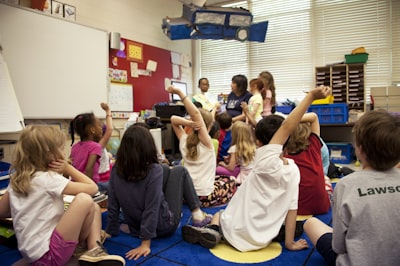Ofsted has published a new report today, emphasising the critical importance of foundational knowledge and skills in children’s early education. The findings reveal that many children, particularly those from vulnerable and disadvantaged backgrounds, are not finishing Key Stage 1 equipped with essential skills, which may hinder their educational progress in later years.
The report notes improvements in the teaching of early reading, yet it highlights persistent weaknesses in some schools’ English curriculums. Inspectors found that while phonics instruction has been enhanced, many children still struggle with complex reading and writing tasks before acquiring the necessary foundational knowledge.
Sir Martyn Oliver, His Majesty’s Chief Inspector, stated, “A child’s first few years at school are vitally important to their future learning and development. We know that by providing children with an excellent early education, we can set them up with the tools they need to flourish throughout the later stage of their education.”
The report indicates that strong curriculum and teaching practices significantly benefit children who enter school with lower starting points. However, any shortcomings in teaching or assessment are exacerbating the gaps between these children and their peers, especially those with special educational needs.
Ofsted identified a significant barrier to learning in Reception and Key Stage 1: the lack of clarity regarding foundational knowledge in the curriculum. This often results in teachers being uncertain about what to prioritise in their instruction and assessment. Additionally, the report highlights that certain teaching methods may not effectively support children’s learning needs, and assessment practices sometimes fail to capture children’s understanding accurately.
Good practice examples were noted in the report, with some schools adapting their curriculums to focus on language development in response to rising numbers of children entering Reception with speech and communication difficulties.
To address the challenges identified, Ofsted has made several recommendations for schools to ensure that children build the necessary foundational knowledge and skills by the end of Key Stage 1. These recommendations include:
- Clearly outlining foundational knowledge and skills in the curriculum.
- Providing ample opportunities for children to practice and embed their knowledge and skills.
- Ensuring that teaching methods align with the subject matter and what children already understand.
- Developing assessment strategies that quickly identify misunderstandings to offer timely support.
- Avoiding overreliance on end-of-key-stage assessments to dictate curriculum and teaching approaches.
As schools continue to grapple with the ongoing impact of the COVID-19 pandemic on behaviour and social skills, Ofsted’s report serves as a timely reminder of the importance of early education.
For further insights and recommendations, read the full report, ‘Strong Foundations in the First Years of School,’ available on the UK government’s official website. The report aims to guide educators in developing curriculums that equip all children with the skills necessary for their educational journeys.


